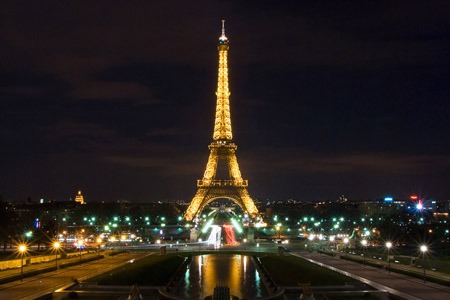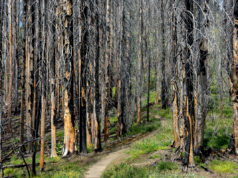Delegates from hundreds of nations will meet in Paris in December 2015 to try to hash out an international climate pact.
Dear EarthTalk: What are the prospects for reaching an international agreement to rein in carbon emissions significantly at the upcoming Paris climate talks at the end of the 2015?
— Jason Cervantes, Los Angeles, CA
All eyes will be on Paris this coming December when climate delegates from around the world gather there for the 21st annual session of the Conference of the Parties (COP21) to the 1992 United Nations Framework Convention on Climate Change (UNFCCC).
Achieving their objective—a legally binding and universal agreement limiting carbon emissions to keep global warming below two degrees Celsius—has been elusive to date, but environmentalists remain optimistic that 21 could be their lucky number.
“I have every expectation that negotiators will agree on an international climate pact in Paris,” says Jennifer Morgan, Climate Program Global Director for the World Resources Institute, a sustainability-oriented non-profit think tank. “This first truly global climate agreement will embody a new form of international cooperation that can put the world on a path to a low-carbon economy.”
Morgan remains optimistic not only because clean tech investments are surging worldwide while manufacturing costs for renewables like solar plummet, but also because the world’s largest emitters, the U.S., China and India, are already making unprecedented climate commitments. “All of this sends positive momentum heading into the climate talks in Paris,” she adds.
Meanwhile, Jamie Henn, strategy and communications director for the non-profit 350.org, agrees that the prospects for some kind of deal look good, but wonders “if it will actually significantly cut emissions.” He explains that some countries, led by the U.S., are trying to transform the climate agreement from a legally binding document that mandates emissions reductions to a looser “pledge and review” approach, whereby countries voluntarily offer up their own emissions reductions and financial commitments.
“That makes it easier to get a deal, but it’s unclear whether the commitments will really add up,” says Henn. “So far, it isn’t promising.” He adds that few countries have put forward the types of bold commitments necessary, while others, like Canada with its tar sands extraction, are flaunting the international consensus and aggressively expanding fossil fuel development.
Given these political realities, Henn thinks any deal struck at Paris is unlikely to “save the climate” but could nevertheless send a powerful signal to politicians, investors and the public that the age of fossil fuels is coming to an end. “That would be a useful development, something that could lead to major shifts in investment flows and decision making at the national level,” he reports.
Henn believes that while the fossil fuel industry may still be “calling the shots” here in the U.S., the climate movement is making inroads. He cites the fossil fuel divestment campaign and mobilizations like the September 2014 People’s Climate March, where upwards of 400,000 people took to the streets of New York City calling for emissions reductions, as indicators that change may finally be afoot.
“The fight for a fossil free future will continue whether or not Paris is a success,” concludes Henn. “The talks are just another stop along the way to a 100 percent renewable future.”
CONTACTS: World Resources Institute, www.wri.org ; 350.org, www.350.org .
EarthTalk® is produced by Doug Moss & Roddy Scheer and is a registered trademark of Earth Action Network Inc. View past columns at: www.earthtalk.org. Or e-mail us your question: earthtalk@emagazine.com.
{jathumbnail off}








